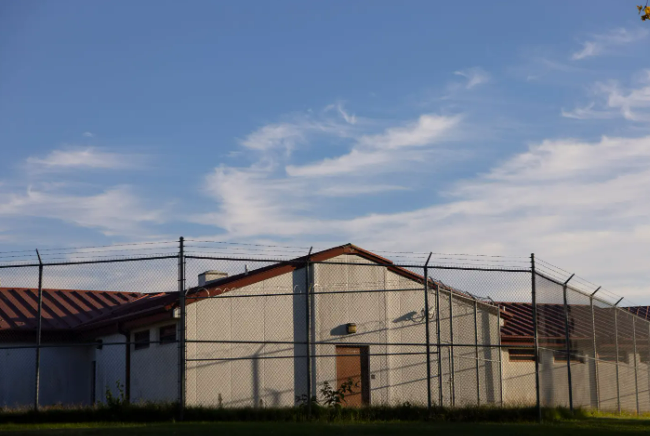IL Judge Closes "Facility in Crisis" Juvenile Detention Center
State auditors noted the detention center as a "facility in crisis" last year

The judge responsible for the administration of a troubled juvenile detention center in southern Illinois abruptly moved to close it as of Dec. 31, citing staffing shortages that made it difficult to meet new state standards governing the treatment of youth in custody. The Franklin County Juvenile Detention Center was featured in a November report by Capitol News Illinois and ProPublica that exposed the state’s lax enforcement of its own standards, despite audits that repeatedly found poor conditions at the facility.
Those standards were updated by the Illinois Department of Juvenile Justice in 2021. Changes made were intended to improve education and mental health services for detained youths, to limit the use of restraints and seclusion, or locking kids alone in their cells for hours. But in an inspection the following year, the state agency described the detention center as a “facility in crisis." It did not provide the required mental health care, schooling and recreation for the children in custody, and staff locked youth in their rooms for up to 24 hours for behavioral infractions or because of short staffing. Facilities are only allowed to use seclusion to prevent someone from harming themselves or others.
That same year, the Illinois Supreme Court, which shares oversight of the state’s juvenile detention centers, also found that the Franklin County center did not meet its standards. In the summer of 2023, the facility was sued by the American Civil Liberties Union of Illinois, alleging it had violated youths’ constitutional rights by subjecting them to excessive forms of restraint and seclusion while denying them adequate education and mental health services. The facility had still not come into compliance as of the end of 2023.
Kevin Fee, a staff attorney with the ACLU of Illinois, said that his organization sued the facility in June when it found that the troubling state audits had not led to improvements. “I think that the closure of the facility is a good outcome, and we read it as an acknowledgement that the facility really has not been serving the youth that it houses adequately for some time, as we alleged in our lawsuit,” Fee said. “We hope that other facilities in the state that house youth will use this to measure their own conditions, and we’ll continue to monitor them.”
Here's a thought; end the incarceration of our youth.
In a June 2023 study, the Sentencing Project released a report "Effective Alternatives to Youth Incarceration." This blog has referred to that report before, and every time a facility like the Franklin County Detention Center is closed, or any news highlighting the poor management and human rights violations occur in any juvenile facility across the country is brought to light, you'll see it again.
Alternatives to incarceration models that work:
- Credible messenger mentoring programs
- Advocate/Mentor programs, such as Youth Advocate Programs
- Family-focused, multidimensional therapy models, such as Multisystemic Therapy (MST) and Functional Family Therapy (FFT)
- Cognitive behavioral therapy plus mentors for youth and young adults at extreme risk
- Restorative Justice interventions targeting youth accused of serious offenses
- Wraparound programs
Every single one of those alternatives are shown to work, every single one of those models costs taxpayers less money than youth incarceration programs, and every one of those programs result in healthier families and communities.
Here's that report from the Sentencing Project again --->>> Effective Alternatives to Youth Incarceration










